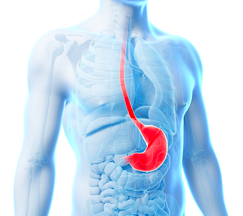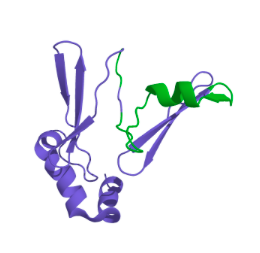Lactic Acid: The Power of the BURN!
The ‘BURN’... both masochistically loved and hated at the same time. We’ve all felt it. We’ve all heard varying opinions ...

The ‘BURN’... both masochistically loved and hated at the same time. We’ve all felt it. We’ve all heard varying opinions ...
Question: “Let’s say we have your average trainee who works out four of five times a week, working each bodypart ...
Vitamins and minerals are essential nutrients that help you maintain optimal health by regulating your metabolism, hormones, and aiding in ...
By Roland Pankewich If you have read the first installment (Read Part 1 Here) you were introduced to the idea ...
So you’ve dieted hard, and trained even harder. Your mind and your body have been battered and depleted from the ...
Minerals like zinc and magnesium are necessary for us to properly use energy, detoxify our bodies, and hundreds of other ...
Cinnamon, one of the most undervalued, underestimated, and under-appreciated supplements around. When taken at effective doses, it packs a very ...
Grocery shopping with health and fitness in mind can be a hassle. That is why in order to to minimize ...
Not all fats are created equal. Put simply, there are good fats and bad fats: the so called unsaturated and ...
In this day and age, exercise and general health have become not only a trend but a necessity. Townships and ...
If you look on the back of a vitamin or food package you will see that ingredients are rated as ...
 Our eating habits are dictated in part by the intricately-balanced process of hunger stimulation and inhibition which takes place within the brain. These same processes also help regulate our energy balance, which is the balance between calories in (food) and calories out (activity). Two hormones have been identified as having a profound influence on energy balance and feeding behavior: leptin and ghrelin. Primarily involved in the suppression of appetite and the regulation of energy expenditure and metabolism, leptin tells the brain when to stop eating, how to balance energy expenditure with food intake, and helps regulate fat storage [3, 4]. Known as the “hunger hormone”, ghrelin tells us when we should start eating, and works with leptin to regulate energy balance [2, 12]. In contrast to leptin, a long term regulator of energy balance and appetite, ghrelin is fast acting; humans injected with ghrelin report feelings of intense hunger almost immediately [6]. The back and forth interplay of leptin and ghrelin controls the degree to which we eat, store fat, and move (e.g. exercise).
Our eating habits are dictated in part by the intricately-balanced process of hunger stimulation and inhibition which takes place within the brain. These same processes also help regulate our energy balance, which is the balance between calories in (food) and calories out (activity). Two hormones have been identified as having a profound influence on energy balance and feeding behavior: leptin and ghrelin. Primarily involved in the suppression of appetite and the regulation of energy expenditure and metabolism, leptin tells the brain when to stop eating, how to balance energy expenditure with food intake, and helps regulate fat storage [3, 4]. Known as the “hunger hormone”, ghrelin tells us when we should start eating, and works with leptin to regulate energy balance [2, 12]. In contrast to leptin, a long term regulator of energy balance and appetite, ghrelin is fast acting; humans injected with ghrelin report feelings of intense hunger almost immediately [6]. The back and forth interplay of leptin and ghrelin controls the degree to which we eat, store fat, and move (e.g. exercise).
The Hunger Hormone
A peptide produced primarily by the cells of the gastrointestinal tract and hypothalamus, ghrelin functions as a neuropeptide by acting on the anterior pituitary to stimulate hunger [6, 12]. Ghrelin also  has the secondary function of allocating and modulating the usage of, stored energy.
has the secondary function of allocating and modulating the usage of, stored energy.
Ghrelin secretion follows a regular pattern by which levels spike around the time of a meal, inducing hunger and feeding behavior, and then drop in response to signals that convey fullness such as stomach stretching. Several hours after a meal, when the meal has been digested, ghrelin is again released to provoke feelings of hunger [11].
It is thought that increased ghrelin can mimic a fasted state, a state that signals impending starvation and warrants the consumption of calorically dense foods, such as chocolate cake and ice cream. [10] This is one reason why the less frequently we eat, the hungrier we become, and the more likely we are to indulge in high calorie foods. Thus, an optimal eating plan aimed at reducing cravings will ensure that meals are not placed too far apart, so as to reduce the effects of ghrelin on the appetite.
The Reward Hormone
 It is a well-known fact that the hungrier we are, the better food tastes. In fact, some people intentionally restrict their caloric intake to generate feelings of intense hunger so they may experience more enjoyment when eating a huge feast of their favorite fare – certainly not recommended here! Many even go so far as to claim that food is addictive; that the longer we go without certain foods, the more we will crave them, much like the effect drugs have on an addict. Such a belief is indeed backed by science [1, 5, 7, 9].
It is a well-known fact that the hungrier we are, the better food tastes. In fact, some people intentionally restrict their caloric intake to generate feelings of intense hunger so they may experience more enjoyment when eating a huge feast of their favorite fare – certainly not recommended here! Many even go so far as to claim that food is addictive; that the longer we go without certain foods, the more we will crave them, much like the effect drugs have on an addict. Such a belief is indeed backed by science [1, 5, 7, 9].
In addition to directly stimulating hunger, ghrelin is also associated with reward-seeking behaviors, most notably through its effects on the ventral tegmental area (VTA), an area of the brain known to be highly involved in the processing of rewards and pleasure [7]. Aside from stimulating hunger, ghrelin seems to play a large part in the feelings of pleasure and reward that arise from the consumption of food [7, 9]. A highly valuable property in times when food is scarce, the feelings of pleasure induced by ghrelin can become problematic if food is abundant (especially calorically dense food). By affecting hunger as well as desire, ghrelin can compel us to over-consume highly available, calorically dense foods in excess of immediate metabolic needs; a situation which can quickly lead to unwanted fat gain [1, 7, 8].
Ghrelin and Sleep
 Most ardent fitness enthusiasts are aware of sleep’s integral role in supporting health, wellbeing, and growth. While a night of sound sleep can boost growth hormone, increase protein synthesis, and prepare us for the day ahead, sleep deprivation (however minor) has been found to elevate the stress hormones cortisol and epinephrine and promote insulin resistance, all of which may lead to unwanted weight gain and even muscle loss.
Most ardent fitness enthusiasts are aware of sleep’s integral role in supporting health, wellbeing, and growth. While a night of sound sleep can boost growth hormone, increase protein synthesis, and prepare us for the day ahead, sleep deprivation (however minor) has been found to elevate the stress hormones cortisol and epinephrine and promote insulin resistance, all of which may lead to unwanted weight gain and even muscle loss.
There is also an inverse relationship between sleep duration and blood plasma concentrations of ghrelin. Indeed, what many do not know is that during sleep, ghrelin levels automatically decrease. However when sleep is not forthcoming, ghrelin begins to accumulate, which promotes hunger and tricks us into thinking we need more calories [12]. Exacerbating this situation is the fact that in the presence of excessive ghrelin accumulation, the body stops burning stored body fat[12]. The result: we feel increasingly hungry, so we eat more than we need; couple that with the other downsides of sleep deprivation, and unwanted fat gain is a certainty. So if there weren’t enough reasons to get enough sleep, you can add ghrelin to the list.
For optimal ghrelin suppression, aim for 7-9 hours of sleep each night and follow the general guidelines for sound sleep: do not exercise within four hours of bedtime, avoid caffeine, stimulants, and alcohol (a depressant which disrupts the stages of sleep) in the hours before bed, and set a pre-sleep routine to induce somnolence and stick to it!
In Conclusion
That ghrelin opposes and synergizes with its opposite, leptin, is testament to the body’s miraculous ability to regulate and maintain energy homeostasis. While Ghrelin performs a vital role by informing us when to eat, it can also encourage overfeeding by inducing excessive hunger and targeting the reward centers of the brain. By consistently eating healthful foods, and avoiding those which may render our well-defined physique a shapeless mass of adipose tissue, we may modify and strengthen the activity of the orbital frontal cortex of the brain, the executive decision maker which keeps our more primitive brain areas (including the aforementioned VTA) from running wild. Also, the longer we wait to eat, the more alluring high fat and sugary foods become. So by ensuring we eat before intense hunger sets in (and/or at regular, short intervals), we will keep ghrelin in check, and be on our way to the physique we desire.
References